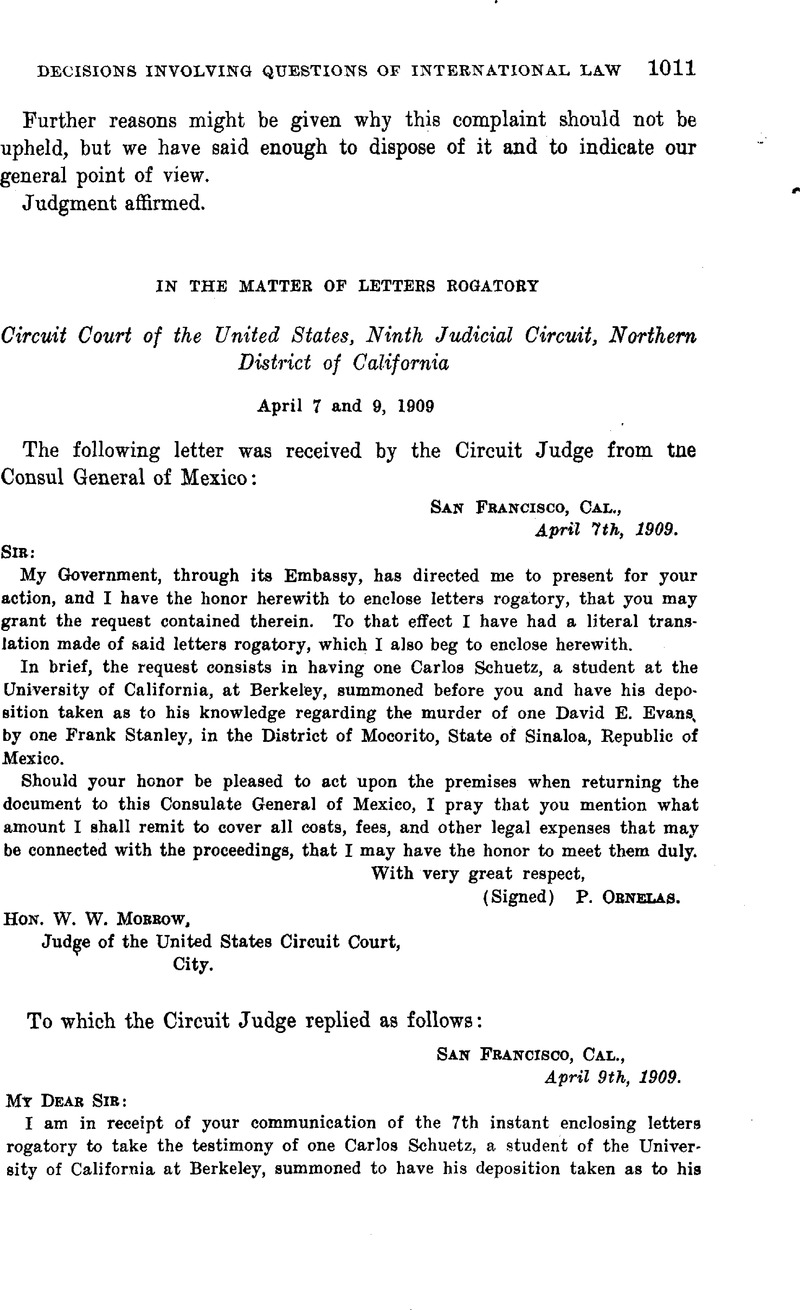An Extensive Summary of Letters Rogatory and Their Legal Implications
An Extensive Summary of Letters Rogatory and Their Legal Implications
Blog Article
The Role of Letters Rogatory in International Legislation: Key Insights
Letters rogatory act as a crucial instrument in international law, helping with cross-border lawful help by permitting territories to officially ask for proof and activities from one an additional. Rooted in historic criteria and defined via arrangements like the 1970 Hague Convention, these demands are essential for fostering international collaboration. Nevertheless, their implementation typically comes across considerable obstacles, including discrepancies in legal standards and step-by-step hold-ups, which can prevent their efficiency. Comprehending the nuances of this procedure elevates important concerns concerning worldwide cooperation and the possible reforms required to improve its reliability. What effects might these obstacles have for future legal proceedings?
Interpretation of Letters Rogatory
In the realm of global legislation, letters rogatory work as formal demands provided by a court in one territory to seek aid from a court in another territory. Letters rogatory. These requests are especially significant in cross-border lawful process, where the enforcement of a court's order or the event of proof may be hampered due to jurisdictional constraints

The procedure normally needs the requesting court to express the certain information or activity required from the foreign court, sticking to the legal protocols and conventions developed between the territories included. Once released, the letters rogatory are transferred through polite channels, which might consist of consulates or consular offices, to make sure that the request is identified and acted upon by the international court. In general, letters rogatory exhibit the cooperative structure necessary for effective global legal procedures.
Historical Context
Although the technique of letters rogatory has ancient origins, its formalization within the framework of worldwide law emerged significantly in the 20th century. Historically, such ask for judicial assistance were used in numerous legal practices, including Roman legislation, where they facilitated cross-border teamwork in lawful matters. The idea gained renewed focus with the rise of globalization and the boosting intricacy of international legal interactions.
The mid-20th century saw the establishment of treaties and conventions that looked for to standardize the process of letters rogatory. Significantly, the 1970 Hague Convention on the Taking of Evidence Abroad in Commercial or civil Matters gave a structured method, boosting the efficacy of these requests - Letters rogatory. This duration noted a change from informal arrangements to a much more organized framework, which dealt with the difficulties postured by differing national legal systems
As states ended up being extra synergistic, the need for effective systems to collect proof throughout boundaries came to be apparent, reinforcing the function of letters rogatory in assisting in global participation. Today, they remain a crucial instrument for acquiring evidence and making sure that justice goes beyond national limits, showing the progressing nature of global regulation in action to international obstacles.
Refine of Issuing Demands
The procedure of releasing letters rogatory typically involves several important steps developed to guarantee that ask for judicial support are clear, particular, and compliant with both worldwide and domestic legal standards. Initially, an event looking for help needs to prepare a formal request that outlines the pertinent facts of the instance, the alleviation sought, and the specific proof or statement needed. This paper should be crafted with precision to fulfill the legal needs of the territory in which it will be sent.
Complying with the preparation of the demand, it is submitted to the proper authority, typically a court or a designated governmental firm. This authority evaluates the demand to ensure it complies with lawful standards and step-by-step norms. When approved, the demand is transmitted to the international territory with polite networks.
Upon receipt, the international court reviews the request's conformity with its neighborhood legislations and techniques (Letters rogatory). If accepted, it continues to perform the demand, which may include the issuance of subpoenas or the collection of proof. Throughout this process, keeping clear communication between the asking for and redirected here receiving jurisdictions is check this site out crucial to make sure effective collaboration and the gratification of the request
Difficulties and Limitations
Obstacles and limitations frequently occur in the procedure of executing letters rogatory, typically originating from varying legal systems and procedures between territories. One substantial obstacle is the varying requirements of admissibility for proof, which can result in issues in the approval of documents asked for through letters rogatory. Additionally, the lack of uniformity in legal terms and interpretations can develop misconceptions, making complex interaction in between courts in various nations.
Moreover, delays are common due to administrative procedures, as the demand might require to pass via numerous layers of lawful authorities prior to it is met. In some circumstances, the asked for territory might do not have the needed sources or desire to comply, better preventing the procedure. Language obstacles additionally contribute to challenges, as accurate translation of lawful records is crucial for ensuring that the desired message is shared without distortion.
Last but not least, sovereignty worries might occur, as some states are hesitant to adhere to demands that they regard as infringing upon their lawful autonomy. These challenges highlight the intricacies integral in the usage of letters rogatory, requiring greater harmonization and participation amongst worldwide legal systems to boost their efficiency.

Effect on International Teamwork
Identifying the importance of letters rogatory in promoting global cooperation is essential, as these requests assist in cross-border lawful aid and promote collaborative efforts in civil and criminal issues. By making it possible for one territory to officially ask for assistance from another, letters rogatory create a structured legal framework that enhances the effectiveness of worldwide communication in between judicial authorities.
The use of letters rogatory helps to establish mutual trust and respect amongst nations, which is important in a significantly interconnected globe. They function as a device not just for gathering evidence but also for ensuring that lawful procedures are promoted throughout boundaries. This is especially crucial in combating multinational criminal offense, where the failure to secure collaboration can undermine justice.
Moreover, the dependence on letters rogatory can simplify complicated legal proceedings, reducing hold-ups and unpredictabilities in worldwide investigations. The step-by-step safeguards intrinsic in this process contribute to the defense of private legal rights while facilitating cooperation amongst states. Eventually, the impact of letters rogatory on global teamwork underscores their duty as crucial tools in the promo of justice, promoting a collaborative spirit that goes beyond national borders and lawful systems.
Verdict
Finally, letters rogatory act as an essential instrument in global legislation, facilitating cross-border lawful assistance and participation. In spite of intrinsic obstacles such as differing governmental delays and legal criteria, their standardized treatments promote depend on among nations. The ongoing evolution of these systems is important for improving the performance of international lawful procedures, ultimately cultivating stronger collaboration in both criminal and civil issues across territories. The relevance of clear interaction in this context can not be overstated.
Letters rogatory offer as a pivotal instrument in international legislation, assisting in cross-border lawful help by permitting territories to officially ask for proof and activities from one an additional.The procedure usually requires go to website the asking for court to express the specific information or activity required from the international court, sticking to the lawful procedures and conventions developed between the jurisdictions entailed. Historically, such requests for judicial aid were made use of in numerous lawful practices, consisting of Roman legislation, where they assisted in cross-border teamwork in lawful matters.The process of issuing letters rogatory typically involves numerous essential actions created to make sure that requests for judicial support are clear, specific, and compliant with both worldwide and domestic lawful criteria.Additionally, delays are common due to governmental procedures, as the request might require to pass with multiple layers of lawful authorities prior to it is fulfilled.
Report this page